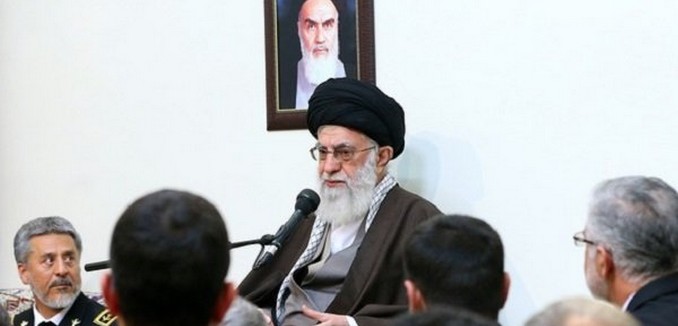Iranian warnings against the passage of the Iran Sanctions Act (ISA) reflect “a broader strategy” in pursuit of additional sanctions relief, Benham Ben Taleblu, a senior analyst at the Foundation for Defense of Democracies, wrote in a policy brief on Saturday.
The ISA was originally passed in 1996, targeting Iran’s energy sector and expanding U.S. secondary sanctions, Taleblu explained. The House of Representatives overwhelmingly approved a ten-year extension of the act earlier this month. In order to be renewed, the legislation must now pass the Senate and be signed into law by President Barack Obama.
The act does not seek to impose sanctions on Iran, but to give the president the legal authority to do so, Taleblu noted. While selling the nuclear deal, the Obama administration asserted that Iranian violations of the deal would be met with “snapback” sanctions. “If you’re going to snap back, you got to snap back to something, and if the Iran Sanctions Act … [doesn’t] exist after next year, there’s nothing to snap back to,” Sen. Robert Menendez (D – N.J.) asserted.
With many international sanctions on Iran now removed as a result of the nuclear deal, “ISA can serve as a pillar in the remaining U.S. sanctions architecture on the Islamic Republic,” Taleblu wrote.
Various Iranian media outlets and officials have disparaged the congressional vote to renew the ISA, claiming falsely that it violates the nuclear deal and warning that Iran would back out in response. Iranian Supreme Leader Ayatollah Ali Khamenei threatened last week that if the ISA is approved, “the Islamic Republic will definitely react to it.”
The accusations that Congress violated the deal serve two purposes, Taleblu explained. The first is to “[complain] of U.S. nuclear-deal violations to wring further concessions. The second is to draw clear red lines to test both President Obama’s commitment to the deal in his administration’s final weeks, as well as President-elect Trump’s resolve to enforce or potentially even renegotiate the accord after he is sworn in.”
Taleblu noted that Khamenei’s “lieutenants have diligently carried out” this strategy. Most recently, Iran’s nuclear chief Ali Akbar Salehi threatened that passing ISA into law would make the West “the main losers” of the nuclear deal.
The threats against the West and the United States specifically come as Iran’s adherence to its obligations under the nuclear deal has increasingly been called into question.
The International Atomic Energy Agency, the United Nations’ nuclear watchdog, determined earlier this month that Iran violated the limits imposed by the accord on its stockpiles of heavy water, an element used in the production of nuclear weapons, for the second time since the deal was implemented in January.
In addition, experts at the Institute for Science and International Security argued that the latest IAEA report on Iran lacked any confirmation that “that Iran is fully compliant with the JCPOA.” The analysts found evidence that Iran was violating several other terms of the deal, and argued that the IAEA’s report was marred by the “overly secretive nature” of the Joint Commission, which was established to deal with Iranian violations of the deal. In particular, the IAEA report raised questions as to whether Iran adhered to limits on its stockpile of low enriched uranium, on its use of advanced centrifuges in uranium enrichment, and in the production of stable isotopes, the experts wrote.
The nuclear deal was designed to keep Iran at a breakout time — the time it takes to produce enough fissionable material for a single nuclear bomb — of at least a year. However, if Iran is violating limits on nuclear material or advanced centrifuges, the breakout time could dramatically shorten.
In July of this year, 15 Democratic senators who supported the nuclear deal questioned whether the IAEA’s reporting requirements on Iran’s nuclear program were specific enough to be effective.
“Providing additional situational awareness of Iran’s nuclear program is vital for the long-term health of this agreement,” the senators, led by Sen. Gary Peters (D – Mich.), wrote in a letter to Obama. “We urge [the Obama] administration to ensure that the IAEA releases all relevant technical information so that we may continue to make our own judgments about the status of Iran’s nuclear program.”
[Photo: Mehr News ]




